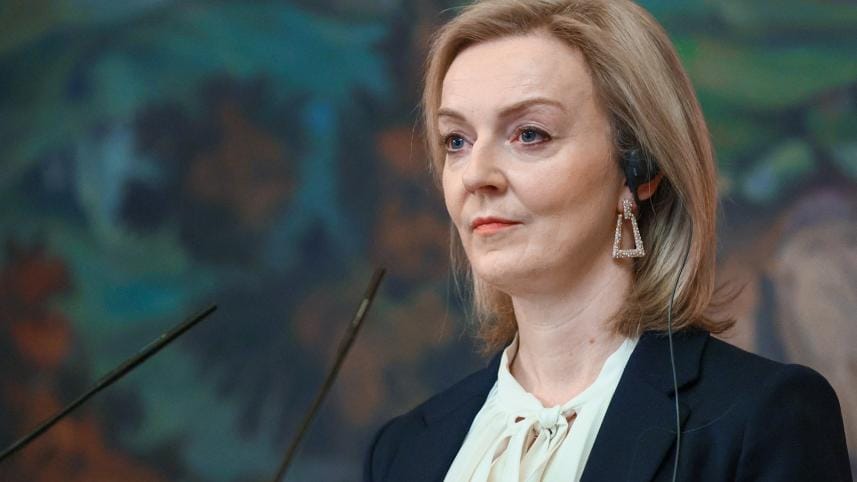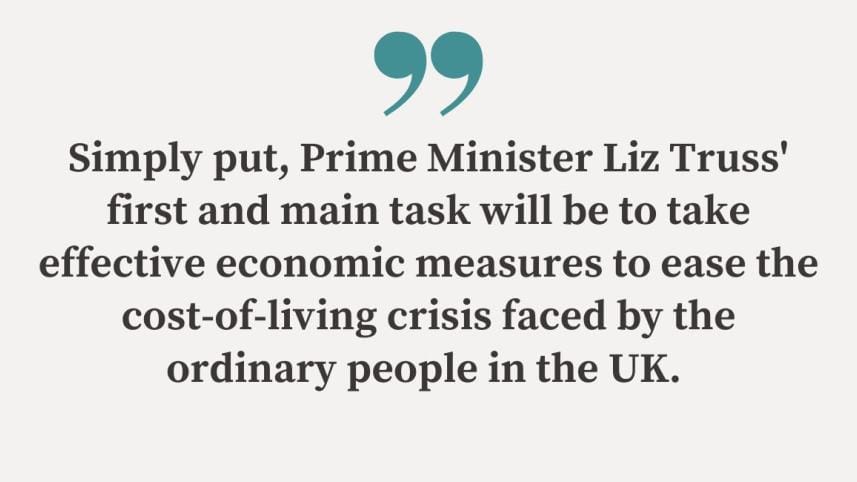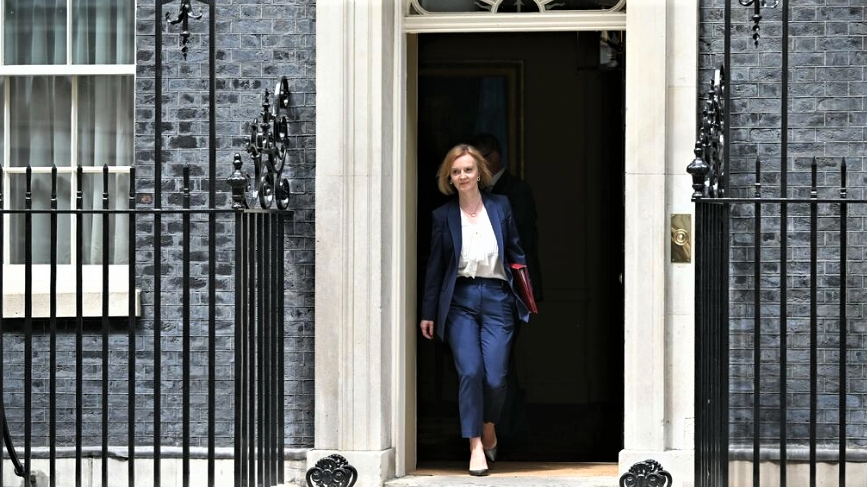Too many adversities await new UK PM

Consistent with the opinion polls among party faithfuls, the Conservative Party has chosen Liz Truss, a free market champion, as its leader and the fourth prime minister in six years since the Brexit referendum. Liz Truss is the third female prime minister in the United Kingdom, following the footsteps of Margaret Thatcher and Theresa May, a unique record for the Conservative Party, which its rival the Labour Party is yet to achieve. Had her rival Rishi Sunak succeeded, that too would have set a new record, making him the first leader from the ethnic minority communities to rise to the top. Liz Truss moves into one of the most famous addresses, Number 10, Downing Street, vacated by a scandal-ridden populist leader Boris Johnson. Given the enormity of the economic woes the UK is facing amid a war in Europe involving Russia and a prolonged global energy crisis, the challenges she faces are multilayered and daunting.
Simply put, her first and main task will be to take effective economic measures to ease the cost-of-living crisis faced by the ordinary people in the UK. Inflation has already exceeded 10 percent and is predicted to rise above 15 percent in the coming months. Fuel prices have doubled and are expected to rise many times more as Russia has suspended its gas supplies to Europe. Railway and transport workers, postal workers, some dockers and even barristers have resorted to strikes demanding pay rise. Pressures to increase public service wages and provide financial support to vulnerable groups are mounting. With the Bank of England's warning that the UK is heading towards a deep recession like the 1970s, the new prime minister's biggest challenge would be to ease public sufferings, bring the economy back to recovery and make it grow again.
During her campaign for leadership, one core policy she frequently uttered was the mantra of helping the economy grow by lowering tax burdens. Her rival Rishi Sunak and a number of leading economists argued that instead of tax cuts for big businesses, money should be spent on providing relief to those who need it most. In her victory speech, and later during her first prime ministerial statement, Truss stuck to her mantra of tax cuts, but promised immediate help to tackle the spiralling energy costs.
Accepting the need of state intervention in dealing with rising energy costs is not the first or only occasion where she has adjusted her stance, if not take a complete U-turn. Her father was a Labour-supporting academic, and she joined him in protests against the nuclear arms race and demanded abolition of the monarchy. In her early days in politics, she was a member of the Liberal Democratic Party, from which she switched to the Conservative Party. However, since joining the Conservatives, her ascension to the top has been quite rapid. She served the government in various capacities and is one of the most experienced ministers in the previous cabinet. In the Brexit referendum, she campaigned in favour of remaining in the EU. But later she admitted that her position was wrong and became a staunch Brexiteer.

On the diplomatic front, she is known as a hawk and has earned some wrath from Russian Foreign Minister Sergei Lavrov for insulting President Vladimir Putin, whom she described as a "rogue operator." Unwavering military and financial support to Ukraine amid war fatigue and the financial crunch at home will certainly remain a challenging task for her administration.
Her most crucial foreign policy challenge, however, will be relations with Europe over disputes on implementation of the Brexit deal. The prolonged dispute over the Northern Ireland Protocol, involving a virtual border on the Irish sea for cargo movement between mainland Britain and Northern Ireland, risks a trade war with Europe. It became even more critical as the devolved administration in Northern Ireland remained without a government due to the unionist party's refusal to join the power-sharing government until the UK government tore up the deal with the EU. Liz Truss, as the foreign secretary, favoured unilaterally opting out of the EU deal, and if she makes good on her promise, a European retribution will aggravate the economy further.
There's little doubt that such a trade war will have wider consequences for the rest of the world, too. Otherwise, it is unlikely that there will be any major change in the UK's foreign policy directions. Though her drive for promoting free trade beyond Europe had limited success for UK exports, it opened up possibilities for others to make inroads in the British market. She had also reiterated her support to the controversial policy of offshoring asylum seekers to Rwanda in a bid to stem the inflow of migrants from war-torn countries crossing the risky English Channel via Europe. This policy has caused friction with the UN, too, and is currently a subject of judicial review.
On the political front, the coming days won't be smooth sailing either. Among the party's 172,000 voters, she was endorsed by about 57 percent, which is lower than her three predecessors; each of them had secured over 60 percent of the votes. In the parliamentary party, too, she came second against Rishi Sunak, which is reflective of the daunting task of uniting the party. Opinion polls suggest the majority of the British people want a national election, and Labour is consistently performing well against the Conservatives. Winning the party leadership was tough, but winning the next election will be a monumental challenge. Besides, her additional headache would be the question of Scottish nationalists' demand for a referendum on their independence, which so far has been resisted by the Westminster government.
The two-month-long leadership campaign, since Boris Johnson announced his resignation on July 6, have laid bare the weaknesses of the party and the failures of the government as all the blame for the country's current woes were laid on the then front-runner former chancellor Rishi Sunak's economic policies. Some observers believe that, despite the disgraceful exit, Boris Johnson will return to frontline politics and Liz Truss's failure to ride out the economic storm will create such an opportunity. Pointing at his departing speech, in which Boris likened himself to Cincinnatus, a Roman statesman who turned to farming after leaving Rome, veteran political journalist Andrew Neil tweeted, "This is not the speech of a departing prime minister who necessarily thinks he's going away forever. And he's enough of a classics scholar to know, in comparing himself with Cincinnatus leaving for his farm, that when the call came, Cincinnatus returned to Rome."
Kamal Ahmed is an independent journalist and writes from London, UK. His Twitter handle is @ahmedka1




 For all latest news, follow The Daily Star's Google News channel.
For all latest news, follow The Daily Star's Google News channel. 
Comments